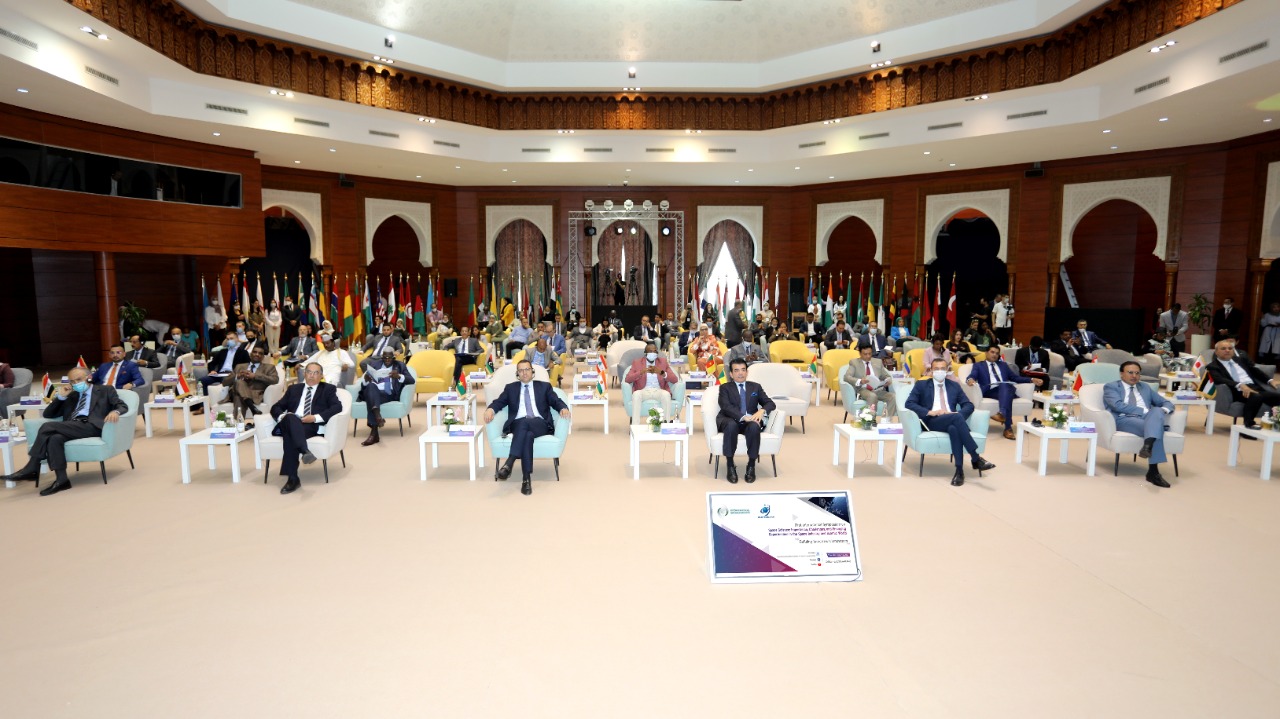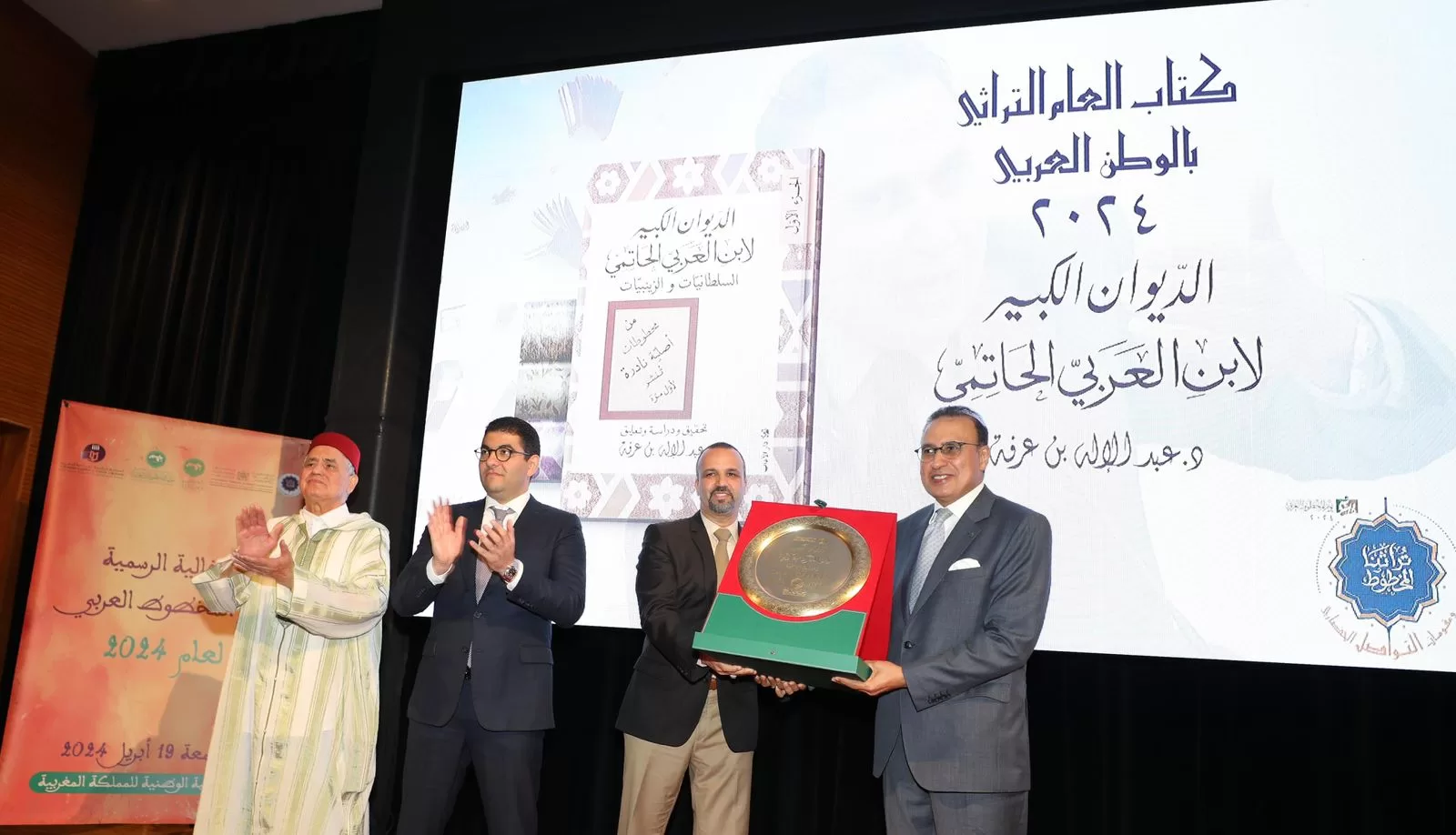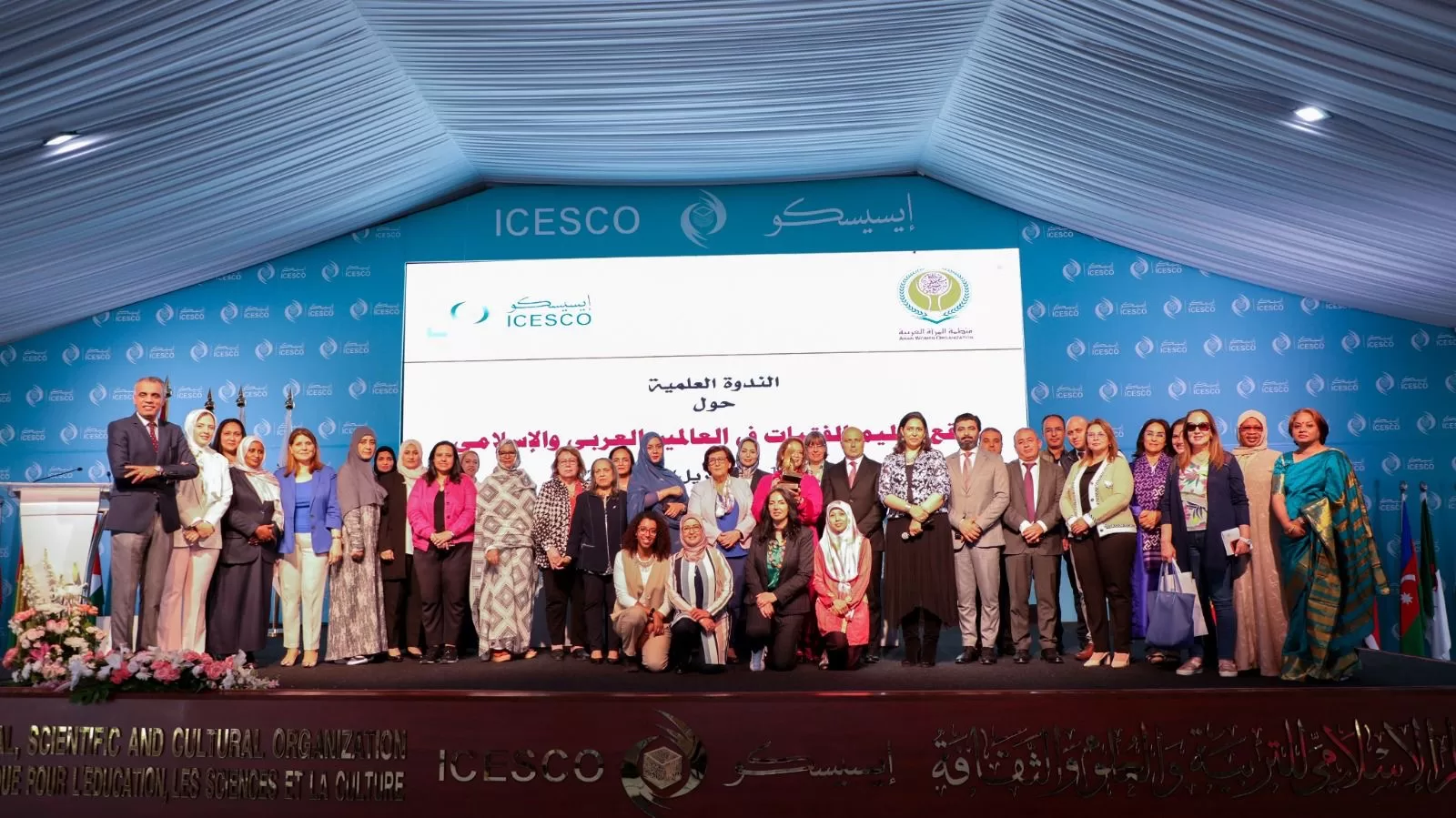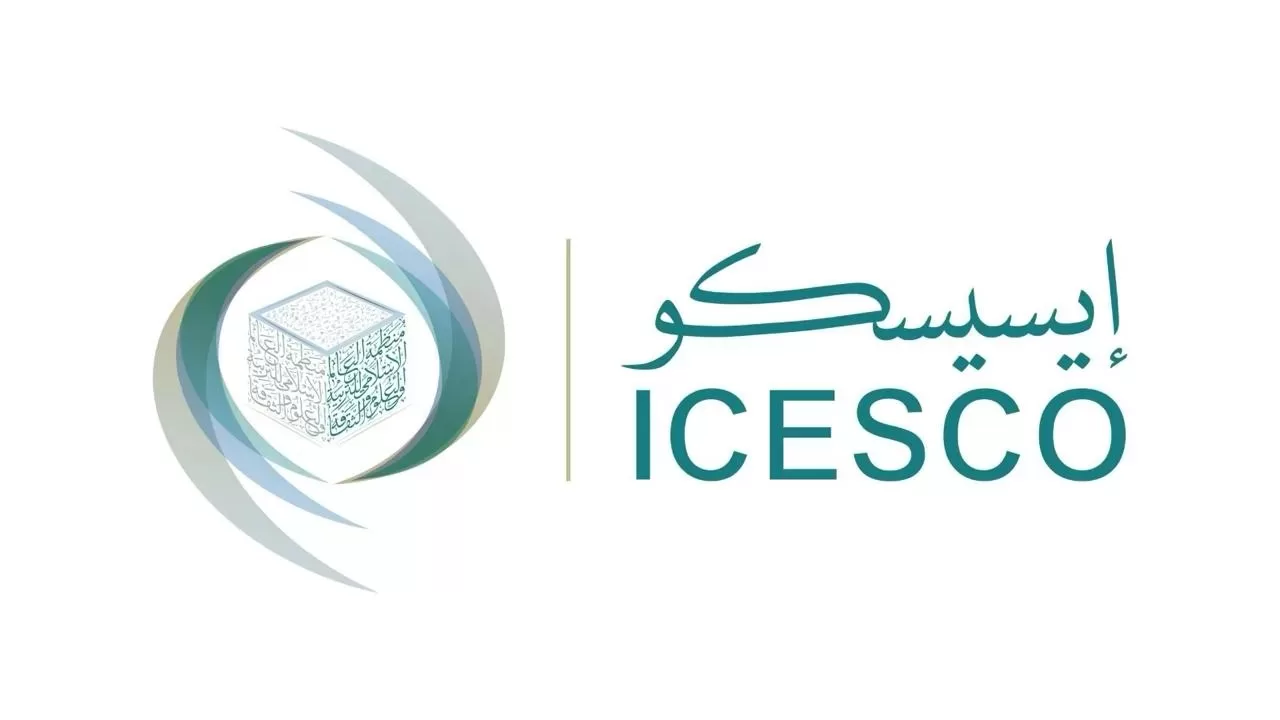
High-level Officials, Scientists and Astronauts Take Part in ICESCO’s Symposium

11 June 2021
Innovative ideas and rich discussions during the First International Symposium on Space Science
The First International Symposium on “Space Science: Importance, Challenges, and Emerging Opportunities in the Space Industry and Islamic World” that the Islamic World Educational, Scientific and Cultural Organization (ICESCO) held, on Thursday, June 10, 2021, in partnership with the American Space Foundation, under the theme: “Building tomorrow’s innovators.”

The Symposium brought together a powerhouse of high-level space program officials and experts, scientists, and astronauts from around the world, who exchanged innovative ideas, explored vital questions, and rich discussions on the challenges and opportunities of space science and development of space-related applications and industries.
The Symposium, organized both at ICESCO headquarters, in Rabat, and on the Zoom platform, aimed at spreading awareness of the importance of space science and technology, and the enormous potential of space technology applications in achieving sustainable development and reinforcing the drive of the countries of the Islamic world towards developing space programs and using space technology in the fields of education, science, and innovation.

At the opening session, Dr. Salim M. AlMalik, ICESCO Director-General (DG), gave an address, wherein he stressed that space science and technology offer broad prospects that can help us overcome the challenges facing our planet, which is why space science should be a major part of the long-term plans and strategies of all countries.
Dr. AlMalik explained that data derived from space science can help improve agriculture, increase crop productivity, discover new sources of energy, contribute to safe waste recycling, and protect and monitor the environment, and other vital areas of human activities.
ICESCO DG also considered that “the drive towards space science in the 21st century heralds a new global industrial revolution, which could be called “space industrial revolution” and constitute in bringing about engineering and revolutionary changes able to create new space markets, systems and technologies.”

In his address, Mr. Thomas E. Zelibor, Chief Executive Officer of Space Foundation, called on all countries to direct their attention towards space science, which should not be limited to certain countries, to achieve a balance in this field, stressing that the world today hinges upon data that space can provide.

On his part, Dr. Driss Ouaouicha, Minister Delegate in charge of Higher Education and Scientific Research, Morocco, confirmed that 50 years of human activity in space enhanced life quality on Earth, noting that Muslim scientists were pioneers in space sciences and planetary exploration, including Al-Khwarizmi. He also reviewed Morocco’s projects in the field of space science development.

Dr. Fawad Hussain Chaudhry, Federal Minister of Information and Broadcasting, Pakistan, stated that stars and space have always been a source of inspiration for humans through monitoring their motion and shifts and developing telescopes. He also congratulated ICESCO for organizing such a key event.

In his address, Dr. Modibo Diarra, Chairman of Africa Legal Network (ALN), described space exploration as an opportunity to bring together different civilizations, cultures, and individuals. He added that space sciences should be accessible to everyone and that the Global South countries should work on bridging the North-South gaps which prevent them from gaining access to the space industry. Dr. Diarra also noted that space sciences could contribute to the development of the African continent.

The Symposium’s first session, under the theme “Space ecosystem awareness: the importance of space technology for humanity,” saw the participation of Ms. Shelli Brunswick, COO of Space Foundation; Maj. Gen. Jose Vagner Vital, Brazilian Air Force Executive Vice President; Maj. Gen. Amer Nadem, Inter Islamic Network on Space Sciences and Technology (ISNET), Chairman at Pakistan Space & Upper Atmosphere Research Commission (SUPARCO); and Dr. Farouk El-Baz, Director of Center for Remote Sensing at Boston University, NASA Astronaut Trainer.

The second session tackled space commerce and career opportunities in the space industry for young graduates. The participants then took part in the first roundtable discussion on developing leadership thinking in the fields of sciences and space among university researchers, which witnessed the participation of several experts, including Moroccan inventor Rachid Yazami. The second roundtable discussion touched upon the importance of strategic relationships between the space industry and academia in developing countries, while the last session explored ways of creating the future space innovation workforce.




